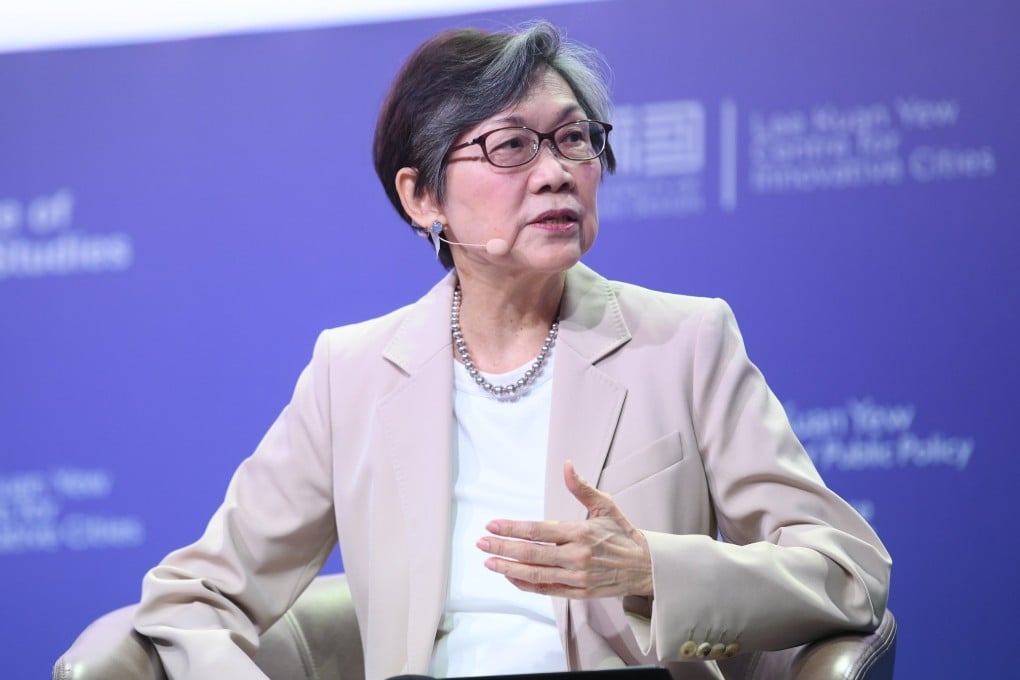Advertisement
Singapore must be alert to China and US stepping up their ‘battle of narratives’: ex-diplomats
- Chan Heng Chee, Singapore’s ambassador-at-large, said the city state’s government is constantly vigilant against agents of influence of all countries
- Her comments come after a recent Washington Post report sparked debate about the purported influence by Chinese entities to sway views in Singapore
Reading Time:3 minutes
Why you can trust SCMP
30

Singapore must be prepared for China and the United States to intensify their “battle of narratives” as they seek to influence public opinion in the city state, two of its veteran diplomats have said.
The topic of foreign interference – by China in particular – was among the key issues raised by a panel discussing the future of Singapore’s foreign policy, as part of a conference on Monday to commemorate the 100th birth anniversary of Singapore’s late founding prime minister Lee Kuan Yew.
Speaking at the conference, Chan Heng Chee, Singapore’s ambassador-at-large, referred to a recent Washington Post report that alleged Beijing is seeking to sway the views of the island republic towards Beijing’s positions on various issues.
Advertisement
The report said various Chinese individuals and entities aim to do so through Singapore’s Chinese-language Lianhe Zaobao newspaper, and its clan and business associations.
Chan said Singapore was “well aware of these activities and the government is constantly vigilant against agents of influence of all countries”. She added that local officials had previously uncovered “black ops targeting our population, seeking to manipulate sentiments”.
Advertisement
Advertisement
Select Voice
Select Speed
1.00x